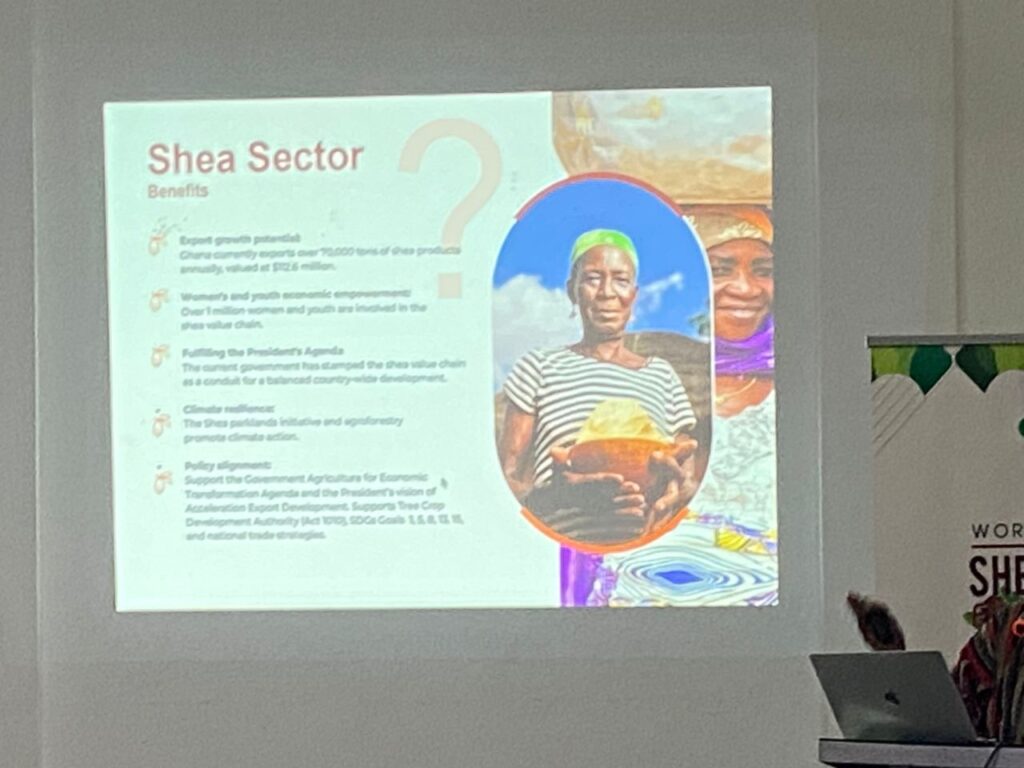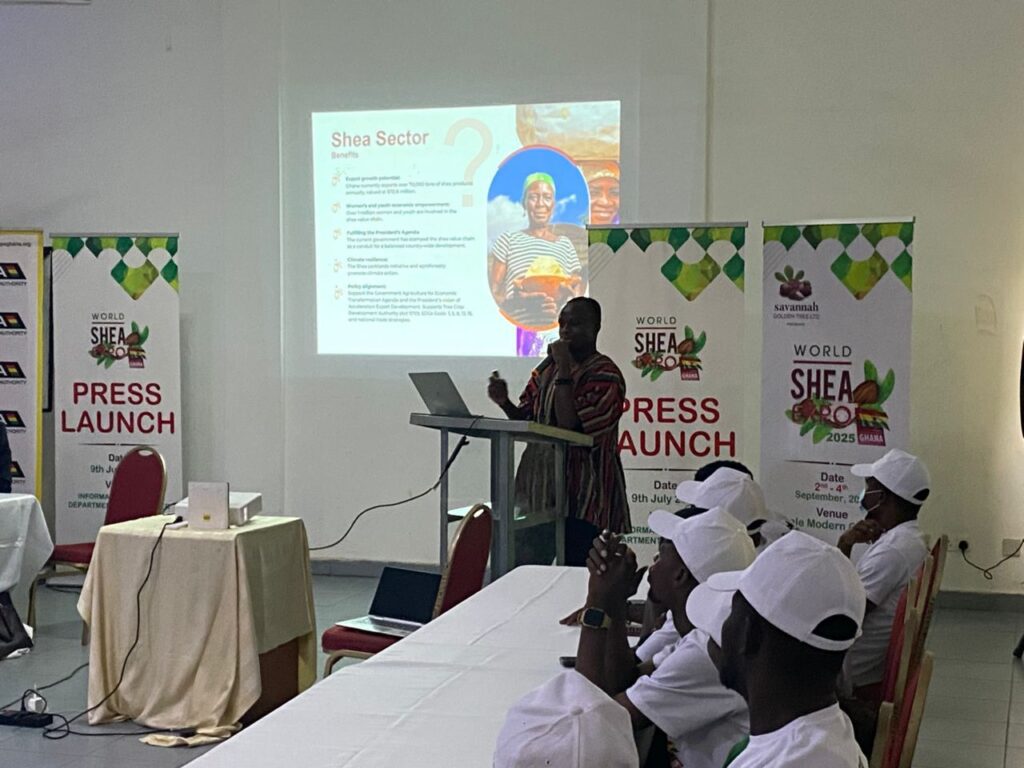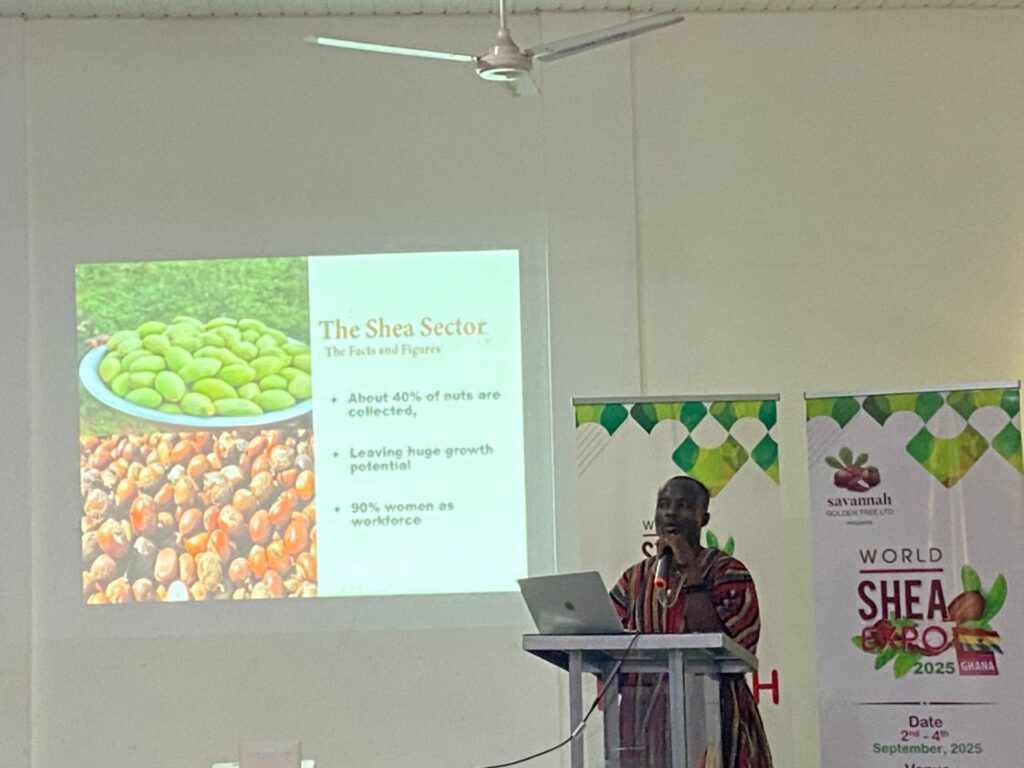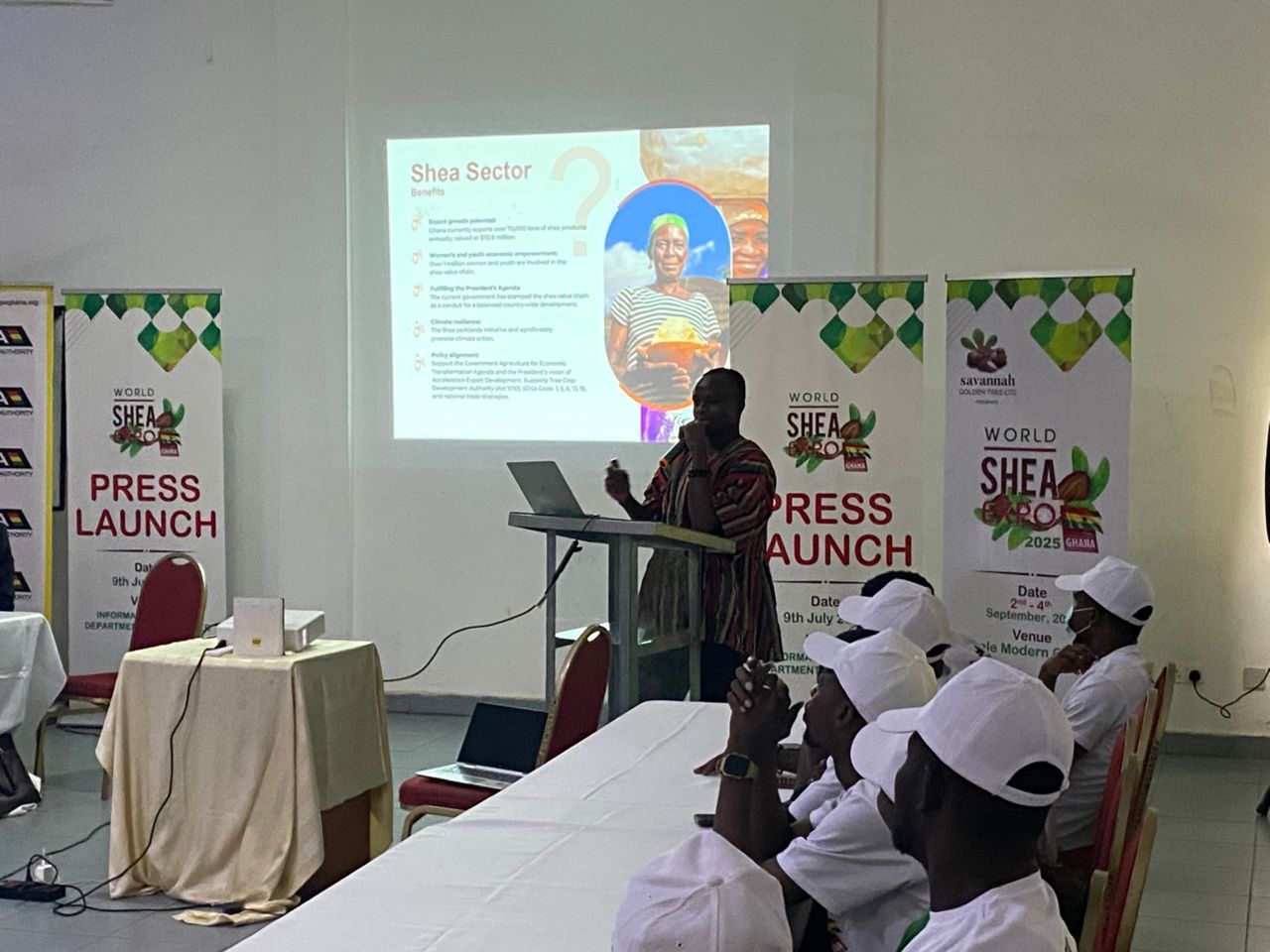Tamale, Ghana – Ghana’s shea industry is stepping into the global spotlight as the country prepares to host the World Shea Expo 2025, slated for September 2–4 at the Modern City Hotel.
The event is expected to showcase the sector’s growing role as a driver of economic growth, women and youth empowerment, and environmental sustainability.
The shea sector already contributes significantly to Ghana’s economy, exporting over 70,000 tons of shea products annually and generating approximately $12.6 million in revenue.
More than one million Ghanaians-predominantly women and young people, rely on the shea value chain for their livelihoods.

Government has formally endorsed the industry as a strategic component of its national development agenda, aligning with the Agriculture for Economic Transformation Plan, the President’s accelerated export development vision, and the Tree Crop Development Authority Act (Act 1015).
The industry also directly supports the United Nations Sustainable Development Goals on poverty reduction, decent work, and climate action.
At the national launch of the expo held on July 9, Mr. Alhassan Abubakari, Chairman of the Local Organizing Committee and Director of the newly established West African Shea Center for Innovation and Research, highlighted the expo’s vision.
He described it as more than an industry exhibition, framing it as a celebration of Ghana’s cultural heritage and a platform to empower small businesses led by women and youth.
“The theme, ‘Empowering Women and Youth-Led SMEs: Unlocking Investment and Growth for Market Exposure,’ reflects the sector’s role as both a poverty buffer and a growth catalyst,” Abubakari said, urging producers, processors, investors, and policymakers to invest directly in women and youth.
Industry leaders are also broadening the scope of shea production beyond its traditional northern base.
Alhaji Imoro, Chairman of Savanna Golden Tree Limited, announced new shea-growing regions identified in Oti, Bono, and Volta, with plans to develop shea as a complementary cash crop alongside cocoa.

The Ghana Export Promotion Authority (GEPA) has expressed strong support, calling for expanded training programs to improve product quality and competitiveness.
GEPA also recommended restrictions on raw shea nut exports to promote local value addition, ensuring greater economic returns for Ghana.

Participation in the expo will be free, with organizers calling for increased media engagement to raise awareness both locally and internationally.
With rising global demand for shea butter in cosmetics, food, and pharmaceuticals, and with its environmental benefits as a carbon sink and biodiversity promoter, Ghana’s shea industry is poised to become a key contributor to sustainable, inclusive growth.
Report By: Kennedy Addy Edem






